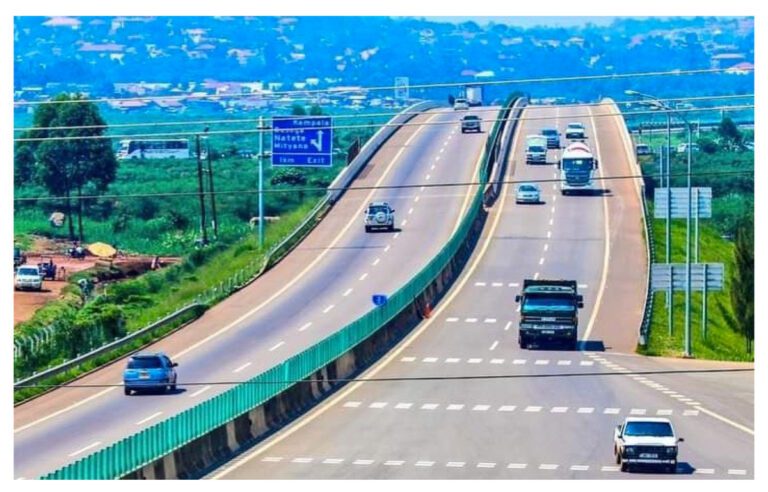🎧 Listen to This Article
A new report highlights critical actions needed to address vulnerabilities and harness the $3.4 trillion potential of the African Continental Free Trade Area.
Africa’s economic resilience is being tested by interconnected global crises, from geopolitical conflicts and the COVID-19 pandemic to energy insecurity and climate change. These shocks have exacerbated existing vulnerabilities, including high debt, reliance on volatile commodity exports, and fragile infrastructure. A new report examines the ways in which African nations can strengthen resilience, reduce external dependence, and unlock the vast potential of the African Continental Free Trade Area (AfCFTA), worth $3.4 trillion. By leveraging regional integration, investing in infrastructure, and fostering a business-friendly environment, Africa can build a sustainable, diversified economic future.
Interconnected Vulnerabilities: A Multidimensional Crisis
The report uses a new framework to assess Africa’s vulnerabilities across six key dimensions: political, economic, demographic, energy, technological, and climate-related factors. These vulnerabilities are deeply interconnected, amplifying each other in a cycle that exacerbates Africa’s exposure to global crises.
- Political Vulnerability: Political instability, including coups and weak governance structures, remains a significant challenge across the continent. The report points to Africa’s record of 220 coup attempts since 1950, highlighting how governance instability undermines economic stability and deters investment.
- Economic Challenges: High debt levels and trade imbalances continue to strain Africa’s economies. In 2023, nearly half of African nations had debt-to-GDP ratios above 60%, with many spending more on debt servicing than on essential sectors like education and health.
- Demographic Pressures: Africa’s rapidly growing population, paired with increasing migration pressures, puts additional stress on social systems, infrastructure, and public services.
- Energy Dependency: Africa’s heavy reliance on fossil fuels, coupled with a lack of renewable energy infrastructure, exacerbates energy insecurity. Over 50% of Africa’s energy is sourced from fossil fuels, and less than half of the continent’s population has reliable electricity access.
- Technological Divide: The digital divide hampers innovation and growth, with many African countries underprepared for disruptive technological advancements. Bridging this gap is essential to future-proofing economies.
- Climate Risks: Africa is highly vulnerable to climate-related risks, particularly in agriculture, a vital sector for millions of Africans. Extreme weather events have caused billions in damages, further deepening economic vulnerabilities.
Export Diversification and Debt Management: Essential for Stability
One of the central recommendations of the report is the need for export diversification. Many African nations remain overly dependent on oil, gas, and minerals for their export earnings, leaving them vulnerable to global price fluctuations. The commodity price downturns of 2014 and the economic impact of the COVID-19 pandemic exposed these weaknesses, with gross fixed capital formation falling from 11.4% in 2014 to 4.8% in 2015.
Debt management also remains a critical issue. Many African countries spend more of their government revenue servicing debt than on essential sectors such as education and healthcare. The report recommends fiscal reforms and reducing reliance on external borrowing while diversifying revenue sources to stabilize economies.
Strengthening Intra-African Trade: Key to Unlocking Potential
Despite challenges, intra-African trade presents a tremendous opportunity. At present, intra-African trade accounts for only 16% of the continent’s total trade. Much of the trade is concentrated in a few economies, such as Kenya, Nigeria, and South Africa. Strengthening these regional trade networks will help reduce dependence on external markets and enhance economic resilience.
The report emphasizes that improving infrastructure, especially in transport and electricity, is crucial to reducing trade costs, which are 50% higher than the global average in Africa. Non-tariff barriers, such as poor connectivity and inefficient customs processes, further hinder trade. The African Continental Free Trade Area (AfCFTA) offers a clear path to reducing these barriers, facilitating easier movement of goods and services, and fostering a more integrated regional economy.
Fostering a Business-Friendly Environment: Empowering SMEs
Small and medium-sized enterprises (SMEs) are the backbone of Africa’s economy, providing 80% of employment. However, these businesses are highly vulnerable to economic shocks. In 2023, 32% of African firms cited limited access to financial tools as a major obstacle to growth. Strengthening financial systems and providing better access to credit and risk management tools is essential for supporting SMEs and enabling them to thrive in a challenging environment.
Energy dependency remains another obstacle, with over half of Africa’s energy supply coming from fossil fuels. The transition to renewable energy is critical for ensuring that businesses can operate reliably and cost-effectively. Encouraging investment in renewable energy and fostering an environment that supports green technologies will enhance long-term economic resilience.
A Blueprint for Africa’s Future
The report provides a comprehensive blueprint for Africa’s economic transformation. It advocates for:
- Bolder economic reforms: including macroeconomic stability and fiscal management.
- Targeted infrastructure investments: particularly in transport, energy, and ICT to drive trade and economic growth.
- A more integrated regional trade system: through the AfCFTA and reducing non-tariff trade barriers.
- Enhanced financial systems and regulatory frameworks: to support SMEs and attract investment.
- Leveraging Africa’s young population: to drive innovation, entrepreneurship, and sustainable growth.
In conclusion, Africa’s economic future depends on addressing its vulnerabilities and harnessing its vast untapped potential. By diversifying economies, improving infrastructure, and fostering regional integration, Africa can build a more resilient, sustainable, and prosperous future.
For further details, clarification, contributions, or any concerns regarding this article, please contact us at editorial@tax.news. We value your feedback and are committed to providing accurate and timely information. Please note that our privacy policy will handle all inquiries



